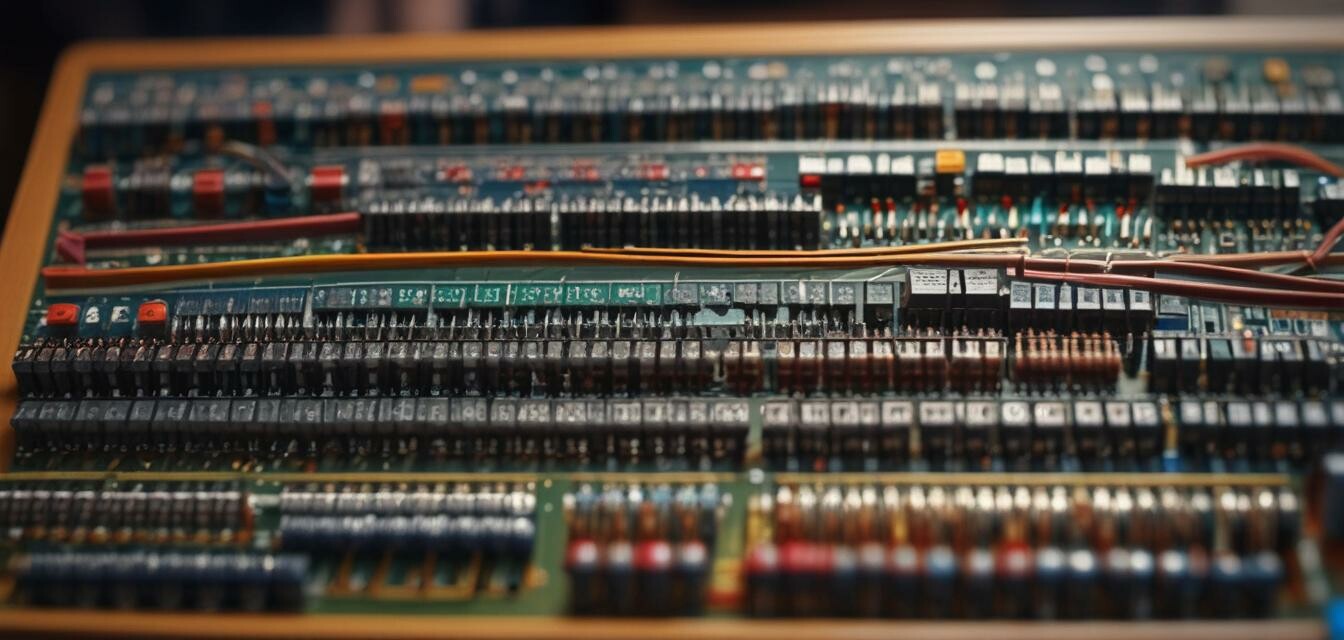
The Best Circuit Testers for Electricians
Key Takeaways
- Understanding the features of circuit testers can enhance troubleshooting efficiency.
- Consider accuracy, ease of use, and safety features when selecting a tester.
- Different models may suit different tasks, from basic to advanced testing.
- Always prioritize reliable brands with good customer reviews.
Choosing the right circuit tester is essential for electricians who value accuracy and efficiency in their work. With various models available in the market, making a decision can be daunting. In this article, we will dive deep into the best circuit testers currently available, analyzing their accuracy, ease of use, and essential features necessary for effective troubleshooting. Whether you're an apprentice or an experienced professional, this guide aims to assist you in selecting the best instrument suited for your needs.
What is a Circuit Tester?
A circuit tester is a crucial tool used by electricians to ensure electrical circuits operate safely and effectively. This device helps identify potential issues like short circuits, continuity problems, or faulty installations. With the right circuit tester, you can significantly enhance your troubleshooting capabilities.
Types of Circuit Testers
There are several types of circuit testers on the market, each serving unique purposes:
- Basic Circuit Testers: Simple devices that indicate the presence of voltage.
- Multimeters: Versatile tools that can measure voltage, current, and resistance, providing more information than basic testers.
- GFCI Testers: Specifically designed to test Ground Fault Circuit Interrupters (GFCIs) for safe operation.
- Non-Contact Voltage Testers: Ideal for checking voltage without direct contact, enhancing safety during inspections.
Key Features to Consider
When selecting a circuit tester, keep the following features in mind:
- Accuracy: Precision is vital in identifying problematic circuits.
- Ease of Use: Look for testers with intuitive interfaces and clear displays.
- Safety Ratings: Ensure your tester complies with safety standards.
- Durability: A robust design will withstand the rigors of daily use.
- Battery Life: Long-lasting batteries mean less downtime on the job.
Comparison of Popular Circuit Testers
| Tester Model | Type | Accuracy | Ease of Use | Safety Features |
|---|---|---|---|---|
| Tester A | Basic Circuit Tester | ±1V | Very Easy | Overload Protection |
| Tester B | Multimeter | ±0.5% | Moderate | Auto Shut-off |
| Tester C | GFCI Tester | N/A | Simple | LED Indicator |
| Tester D | Non-Contact Tester | N/A | Simple | High Voltage Alerts |
Pros and Cons of Circuit Testers
Pros
- Enhances troubleshooting efficiency.
- Identifies issues quickly, saving time on the job.
- Increases safety during electrical work.
- Variety of models available for different needs.
Cons
- Some models may be complex for beginners.
- Quality varies significantly between brands.
- Higher-end models can be costly.
How to Use a Circuit Tester
Employing a circuit tester is straightforward if you follow these general steps:
- Ensure that the tester is turned off before connecting to the circuit.
- Connect the tester to the circuit, following the manufacturer's instructions.
- Turn on the tester and begin testing for voltage or continuity.
- Read the display carefully and follow up with necessary repairs or adjustments.
- Disconnect the tester, and ensure no tools are left behind.
Best Practices for Circuit Tester Maintenance
To prolong the lifespan of your circuit tester, consider these best practices:
- Regularly inspect for damage or wear.
- Store your tester in a dry, secure place when not in use.
- Calibrate the tester as recommended by the manufacturer.
- Replace batteries promptly to maintain accuracy.
- Keep the contact points clean for effective testing.
Conclusion
Selecting the best circuit tester for your needs will enhance your performance and safety as an electrician. From basic testers to advanced multimeters, understanding each type's advantages will help you make an informed choice. Always prioritize accuracy and ease of use to ensure you are well-equipped for any task.
For more valuable insights on equipment for electricians, check out our related articles on Buying Guides, Tools & Accessory Kits, and more on Product Comparisons.